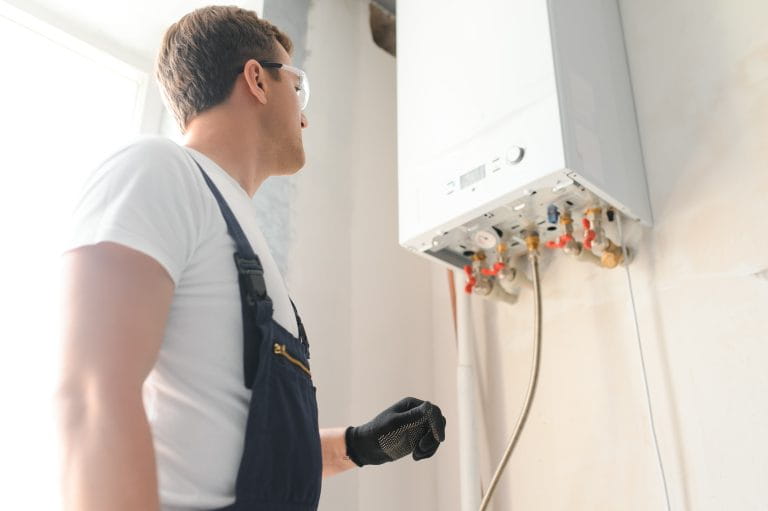2024 is a turning point for bonus and grants reserved for the installation of new boilers. There are significant changes on the horizon to address energy challenges and reduce emissions of pollutants.
Do you get a grant for a new boiler?
The Boiler Upgrade Scheme offers grants to incentivize property owners to replace their current fossil fuel heating systems with more efficient and environmentally friendly alternatives, such as air source heat pumps, ground source heat pumps, and, under specific conditions, biomass boilers.
With this scheme, eligible participants can receive:
- £7,500 for the cost and installation of an air source heat pump;
- £7,500 for the cost and installation of a ground source heat pump;
- £5,000 for the cost and installation of a biomass boiler;
These grants serve as financial support to help property owners offset the initial expenses associated with adopting a low carbon heating system.

Who qualifies for a boiler grant?
You qualify for a grant if the following conditions are met.
- Ownership. You must own the property for which you are seeking the grant, whether it be a residence, a business, a second home, or a property leased to tenants.
- Installation date. The installation of your new heating system must have occurred on or after April 1, 2022, or you have concrete plans for future installation.
- Replacement of fossil fuel systems. The heating system you are installing or planning to install should replace fossil fuel-based systems, including oil, gas, or electric systems.
You remain eligible even if you have previously received funding to enhance the energy efficiency of your property, such as through insulation.
To confirm eligibility for your property, ensure it possesses a valid Energy Performance Certificate (EPC) with no outstanding recommendations for loft or cavity wall insulation. If your property has such recommendations, follow the guidelines provided.
If uncertain about the suitability of your property for a low carbon heating system, consult with an installer certified by the Microgeneration Certification Scheme (MCS) who can discuss your options.
For biomass boilers, eligibility criteria include these elements.
- Gas grid exclusion: your property must be off the gas grid.
- Rural location: the property should be situated in a rural location.
- Emissions certificate: your biomass boiler must possess an emissions certificate demonstrating minimal polluting emissions.
Note that grants are not available for biomass boilers in self-build properties.
Properties ineligible for grants include:
- most new build properties;
- social housing;
- properties that have already received government funding or support for a heat pump or biomass boiler.
For new build properties still under construction by developers, eligibility does not apply. However, if you move into a completed new build with a fossil fuel boiler, you may be eligible for a heat pump grant.
If you own a self-build property, it qualifies if:
- you or the original owner constructed it, either personally or through a builder;
- the property has never been owned by a business or organisation.
How to apply for a new boiler grant?
The Application Process includes these steps.
- Initiate contact: reach out to MCS certified installers to obtain quotations for the required work.
- Eligibility confirmation: ensure eligibility by consulting with your chosen installer, who will provide the necessary information.
- Quote agreement: agree on a quote with the selected installer.
- Application submission: your chosen installer will submit the application on your behalf through the Ofgem website.
- Grant deduction: the granted amount will be subtracted from the total installation cost you are required to pay.
After the application, Ofgem will contact you to verify that the installer is representing you. They may use various means, including phone calls or property visits, to confirm the installation.
MCS might contact you independently to conduct their own checks and ensure compliance with their standards.
What is the future for boilers?
The future of boilers is expected to be influenced by several trends and developments aimed at improving efficiency, reducing environmental impact and meeting evolving energy needs.
- Green and sustainable technologies. As the world focuses on sustainability and reducing carbon emissions, the future of boilers is likely to involve a shift towards green and renewable technologies. This includes the adoption of biomass boilers, heat pumps, and other low-carbon or carbon-neutral heating solutions.
- Electrification of heating. With the increasing electrification of various sectors to support renewable energy integration, electric boilers may become more common. This aligns with efforts to transition away from fossil fuels and utilise cleaner electricity sources.
- Smart and connected systems. The integration of smart technology into heating systems is expected to continue. Smart devices such as thermostats and valves can optimise energy usage, improve efficiency, and provide homeowners with greater control over their heating systems through automation and remote monitoring.
- Energy efficiency regulations. Governments and regulatory bodies are likely to introduce more stringent energy efficiency standards for heating systems. This could drive innovation in boiler technology, encouraging the development of high-efficiency models that consume less energy and produce fewer emissions.
It is important to note that the specific trajectory of boiler technology will depend on factors such as technological advancements, policy decisions and societal preferences. The transition to more sustainable and efficient heating solutions is a key driver in shaping the future of boilers.










































